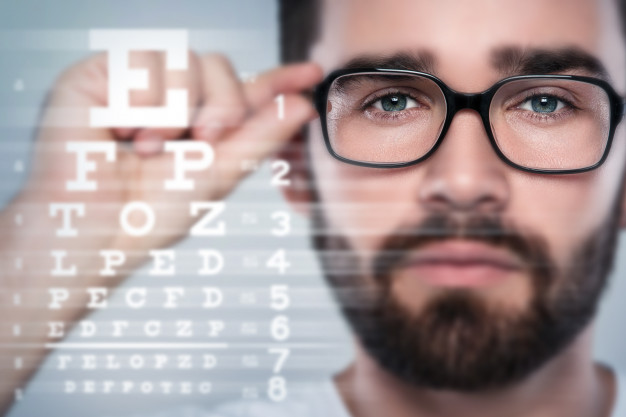
Seven in 10 office workers upped their screen use during lockdown – with millions suffering eye issues as a result, research has revealed.
A survey of 2,000 18 to 60-year olds revealed 37 percent have experienced tired eyes from looking at screens too often.
One third (34 percent) have had headaches, 20 percent have had eye strain and 19 percent have suffered dry eyes.
And it is the younger generation which is suffering the most following their growing reliance on computers, smartphones, and tablets.
The survey by modern spectacle makers Cubitts [cubitts.com] revealed 86 percent of 18 to 24-year olds and 75 percent of those aged 25 to 34 have been using a screen more during the lockdown period.
Both age groups are typically spending around six-and-a-half hours looking at a screen on an average workday.
The result is more than 40 percent of each age group suffering tired eyes and headaches, while more than a fifth have been getting eye strain.
More than a third (38 percent) of adults even admitted they might be addicted to looking at screens.
But once again the situation is worse for millennials and Gen-Z – with 48 percent of 25 to 34-year olds thinking they’re addicted to screens and 52 percent 18 to 24-year olds.
Tom Broughton, Cubitts founder, said: “It is alarming how many people, particularly youngsters, could be straining their eyes by spending too much time looking at screens.
“The lockdown and rapid growth of smartphone usage has created a society more and more dependent on screens and it’s vital to give your eyes a break.”
It also emerged that during the peak of lockdown, the average adult was spending two-and-a-half hours on video calls each day.
On top of this, they were spending a maximum of three hours binge-watching a TV series and 72 minutes per day on social media apps.
The research also found 11 percent of those polled for Cubitts by OnePoll could be causing themselves damage by needing prescription glasses but not having them.
However, it also revealed the issues many think they’d face if they were told they needed glasses – with 37 percent saying it would be difficult for frames to fit their head.
But fewer than a third (32 percent) have had an eye test over the past year.
And a quarter (24 percent) have either NEVER had their eyes tested or haven’t within the past five years – despite 90 percent saying it is important to regularly have your eyes tested.
Tom Broughton, Cubitts founder, added: “Myopia is the biggest condition affecting humans with an estimated three billion people needing glasses around the world.
“Putting off wearing glasses can cause more serious issues in the long run so it is important to visit your local optician if you’re having trouble or have not been in more than 12 months.
“Finding frames that fit correctly is a common problem that can often put people off visiting their optician.
“At Cubitts, all 10 of our stores offer spectacles in a range of sizes, as well as a bespoke service that utilizes advanced technology, taking exact facial measurements to craft frames that will offer a perfect fit.”
Cubitts has recently reopened their nine London stores, and last month opened their first store in Brighton, all offering eye tests.
Cubitts’ senior optometrist Betony Spall advises a 20-20-20 method of screen time – every twenty minutes, you take a twenty-second break and look twenty feet away from your screen.
Spall also advises giving yourself a 10 minute break once an hour to allow your eyeballs a rest, or if it’s been two hours and you haven’t had a break, then you take twenty minutes.
Other ways to keep your ocular equipment in good nick include embracing the night mode function on your smartphone and switching off your devices at least an hour before going to bed.
Read more about eyecare and book an eye test with Cubitts: https://www.cubitts.com/












